The reputation of Brazilian agriculture is at an all-time-low as destruction of the Amazon and Cerrado mounts. Can anything be done to put things right?
It was the late 1970s when Dudy and Luiz Fernando Paiva left São Paulo for a farm in the Brazilian state of Mato Grosso. Back then, the region was at the heart of the country’s agricultural revolution, one that would transform it from a net importer of food in the early 1970s to the agricultural powerhouse it is today. The couple opened Fazenda Santana, a 1,500-hectare beef and dairy farm on the border of the Amazon rainforest and the Cerrado tropical savannah, two of the most important ecological habitats in South America.
The Paivas set out to produce food sustainably, making a quick decision to expand into an integrated farming system combining cattle and crops with zero-tillage to protect the soil. Today, its fields are filled with soy and corn for much of the year, though through the dry season the land is parched, often not seeing rain for several months. Herds of cattle graze on the scrub left behind. “The different systems work together to help the environment,” says their son Juliano Ribeiro Graça Paiva. “We are fixing carbon into the soil.”
Today, agriculture looms large over the entire region. Fields of crops stretch out uninterrupted towards the horizon. The nearby highway rumbles day and night with lorries loaded with grains, seeds, and sugar for the local processing plants of Cargill, Bunge and Cofco. Billboards line the road, pushing the latest machinery and apparatus to local farmers.
But sustainable farms like the Paivas’ are not uncommon in Brazil. The country has developed a terrible reputation for its environmental record in recent years, but much of Brazil’s agricultural output is deforestation-free. A 2020 study published in Science – titled ‘The rotten apples of Brazil’s agribusiness’ – found 2% of properties in the Amazon and Cerrado were responsible for 62% of all potential illegal deforestation.
“It’s a sector that’s very powerful, very conservative. It’s also arrogant and hates interference”
It is a message many in Brazil are desperate to communicate. “One thing that makes me sad is the generalisation,” says Marcos Fava Neves, an expert in Brazilian agri-business, pointing out that Brazil is twice the area of the EU. “It’s like blaming Portugal for something that’s going on in Poland. Yes, they’re both in the EU, but why are you mixing us with other things that are going on over there?”
The Amazon attracted most attention from European policymakers and business leaders in recent years. British supermarkets were among those to sign up to the Soy Moratorium in 2006, a voluntary commitment that banned soy from deforested areas in the Amazon biome. The interventions had much success, a 2020 study in Nature calling it “one of the great conservation successes of the 21st century” after the rate of Brazilian Amazon deforestation fell 84% between 2004 and 2012.
But while deforestation fell in the Amazon, the detrimental impacts “leaked” into other biomes and “today, the neighbouring Cerrado biome is a deforestation hotspot,” concluded a paper in Nature last year. In the year to July 2021, deforestation hit a six-year high in the Cerrado with 8,531 sq km cleared – an area more than five times the size of Greater London.
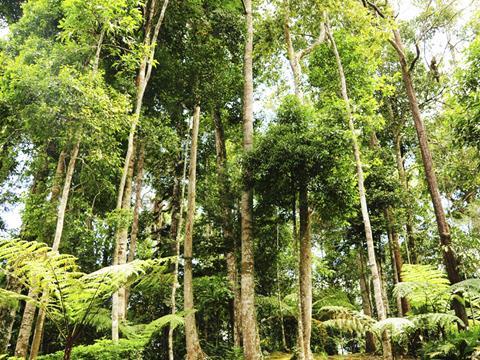
Alarming expansion
The extent of the agricultural expansion is alarming ecologists. The Cerrado is one of the most biodiverse savannahs in the world, home to thousands of plants and animals’ species, yet its transformation into a soy-producing powerhouse means that since 1985, nearly half of its native vegetation has disappeared, according to the MapBiomas monitoring project. The conversion is also contributing to the climate crisis as the Cerrado’s deep-rooted plants are at the heart of a huge carbon dioxide sink in the region. As they are removed, the gas is released into the atmosphere. The situation is becoming critical, with a paper last year concluding the Cerrado is “becoming hotter and drier” and now threatens an entire ecosystems collapse.
The destruction is of high importance to the British food industry, given Brazil supplies almost two-thirds of all soy in the UK used for animal feed, according to research by the London School of Economics. In 2019, Tesco pledged £10m to try and incentivise farmers to grow soy on existing agricultural land rather than burning virgin forest, and this summer, Sainsbury’s and Waitrose joined it by investing a combined $11m (£9.1m) into a new system of financial incentives for Brazilian farmers to conserve native vegetation.
“It’s very clear that we do not need to cut a single tree in the Amazon rainforest to convert into agriculture”
There have also been efforts to pressure soy traders such as Cargill to screen out farmers non-compliant with deforestation laws, but according to one Brazilian environmentalist, these fell flat. “The traders could not screen them out. The farmers won. There was a tremendous outcry from the soy associations like Aprosoja and Abiove [representing producers] who said ‘this is infringing on our national sovereignty. We’ll do what we want. And if you don’t want us, we’re going to sell it to China.’ It’s very powerful, very conservative [as a sector]. It’s also arrogant and hates inference.”
While traders such as Cargill, ADM and Bunge are still widely criticised by campaigners for their links to deforestation, the source suggests these companies are “stuck between a rock and hard place” when it comes to tackling the problem. On the one hand, they’re trying to source more sustainably to meet demand in markets like Europe and US, while simultaneously trying to convince “farmers inflamed by the anti-environmental speech of Mr Bolsonaro”.
President Jair Bolsonaro is widely seen as one of the primary factors behind Brazil’s declining environmental record. Since coming to power in 2019, backed by Brazil’s wealthy agribusiness groups, he has slashed the environment agency’s budget to its lowest level in 21 years, placed it inside the business-orientated agriculture ministry, and openly bragged about the lack of enforcement on environmental laws. “Do [fines] have to exist? Yes,” he said in January. “But we talked, and we reduced the fines in agriculture by more than 80%.”
This tacit allowance of illegal activity has incentivised many farmers to clear land. In the Cerrado last year, 98% of land conversions contained some kind of irregularity such as no licensing or exceeding the legal limit, a Mapbiomas study found. Meanwhile in the Amazon, deforestation in the first half of 2022 was up 80% compared with the same period in 2018, the year before Bolsonaro took office, analysis by the Amazon Environmental Research Institute shows.
It poses a serious conundrum to British food companies linked with Brazil. What can they do to stem the damage? Land clearance is visibly no longer necessary for agricultural development with sufficient land already in production. Across Brazil, there is now 72 million hectares of cropland plus an additional 90 million hectares of degraded pasture, a total area larger than Mongolia. “We have problems with wildfires, we have problems with illegal deforestation,” says Celso Moretti, president of Embrapa, Brazil’s agricultural research association. “But it’s very clear that we do not need to cut a single tree in the Amazon rainforest to convert into agriculture.”
Financial incentives
To tackle deforestation, many therefore agree there must be greater financial incentivisation for landowners to preserve what is still there. “It’s important to see how to include these people in economic activities because when they perceive that the forest has more value standing up than destroyed, I think what we see today will improve,” says Fava Neves.
One option is to expand the availability of carbon markets to Brazilian farmers, he says, allowing them to monetise preserved land by selling credits to other polluters trying to offset their emissions. “This will be a real revolution,” says Fava Neves. “It’ll show that leaving it alone makes more money than producing meat.”
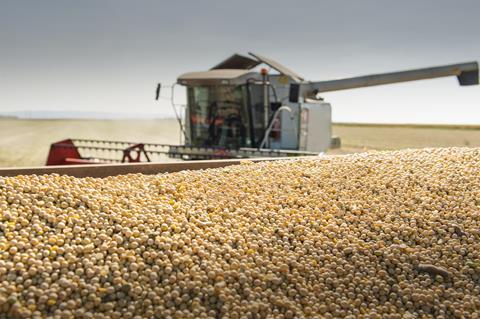
The global demand for carbon credits is expected to grow 15-fold by 2030 to a total value of $50bn, according to The Taskforce on Scaling Voluntary Carbon Markets, and Brazil is now taking steps to join the party. In May, President Bolsonaro signed a decree to create a national carbon market, but there are doubts among investors as to its viability. In a legitimate carbon market, verification is crucial, yet Bolsonaro has given no reassurances this will take place. “If the high-profile issue of deforestation is not tackled effectively… it’s going to be difficult for Brazil to attract investment to the carbon market,” Graham Stock, a strategist for BlueBay Asset Management, told the Associated Press in January.
Tesco, Sainsbury’s and Waitrose are also trying to incentivise soy farmers by providing low-cost finance in return for stemming legal deforestation on their land. The $11m put up by the three supermarkets will be used to provide annual loans for farmers to buy seeds, fertilisers, and other agricultural inputs at a rate around 25% lower than their current interest rate.
As this is their primary cost, farmers could boost their profits by up to 25%, says Pedro Moura Costa, CEO of Sustainable Investment Management, the financial firm running the incentive. The scheme initially focuses on 36 farms but with the pot expanding to $100m next year as other food and drink companies sign up, its reach is expected to grow, says Moura Costa.
European and UK policymakers are also looking to incite change. The EU is looking to implement laws by 2025 that will make it illegal to import goods from illegally deforested land, and the UK may not be far behind. While there are still questions about if and how this can be successfully enforced, some in Brazil claim they are already preparing for the change.
“We will need to provide 100% transparency on the ships going to Europe,” says Andre Nassar, executive president of Abiove. “But of course we need other technologies, we need to improve the traceability system. So that’s what we are doing here in Brazil. Developing the systems for all companies buying soybeans because all companies have to provide the origin.”
Nassar warns, however, that the changes will inevitably raise prices as efficiencies in the current soybean supply chain will be compromised. “You have to change the logistics and then prices will increase because we will lose efficiency.”
Ultimately, much will depend on Brazil’s upcoming elections in October. Brazilian law already specifies that farmers must protect a certain amount of native vegetation depending on the biome, ranging from 80% in the Amazon to up to 35% in the Cerrado. But a lack of enforcement is undermining its potential. “The Brazilian Forest Code in my view is one of the laws that has the most tremendous conservation transformation potential,” says Moura Costa. “The problem is that the government never put the resources to verify if the information is right or wrong. It’s self-declaratory so no one is currently saying ‘you don’t have enough legal reserve so you have to do something about that’.”
Many environmentalists hope that Lula da Silva, the current frontrunner in the polls and former president from 2003 to 2010, can win in October and replicate his efforts during his first term in office. While by no means a perfect record, he oversaw record falls in Amazonian deforestation and has pledged to seek “net zero deforestation” in the country if elected.
“One thing that makes me sad is the generalisation. It’s like blaming Portugal for something that’s going on in Poland”
There will never be a silver bullet, however, with carrots and sticks necessary to ensure the existing pockets of sustainable Brazilian agriculture become the norm. Some of this may be an international premium, some may be low-cost finance from European food companies. There will also soon be requirements for all supply chains into Europe to be deforestation-free.
The outcome of October’s election will trump everything else, however. If Bolsonaro wins again, it could set a direction of travel that is impossible to reverse.







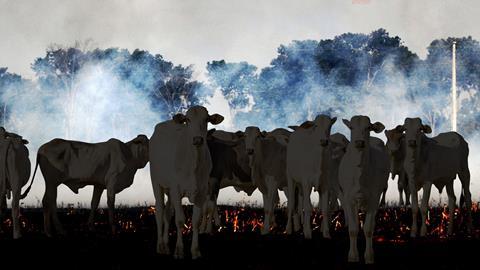
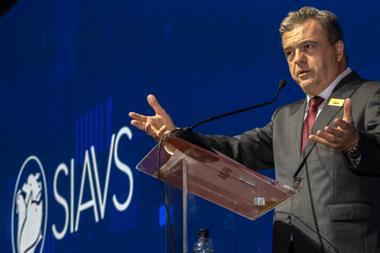
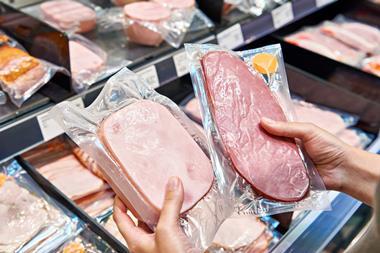
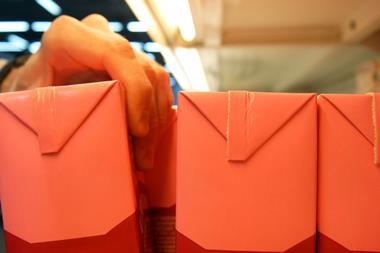
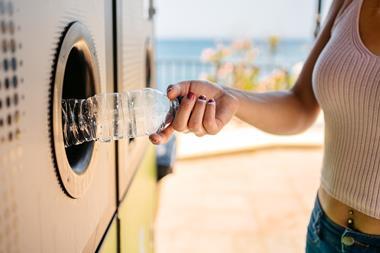

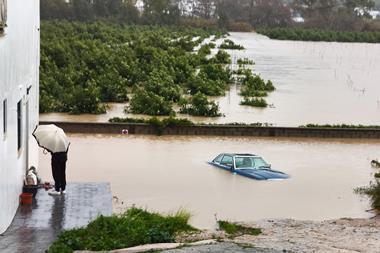
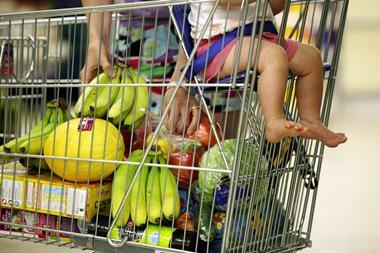





No comments yet